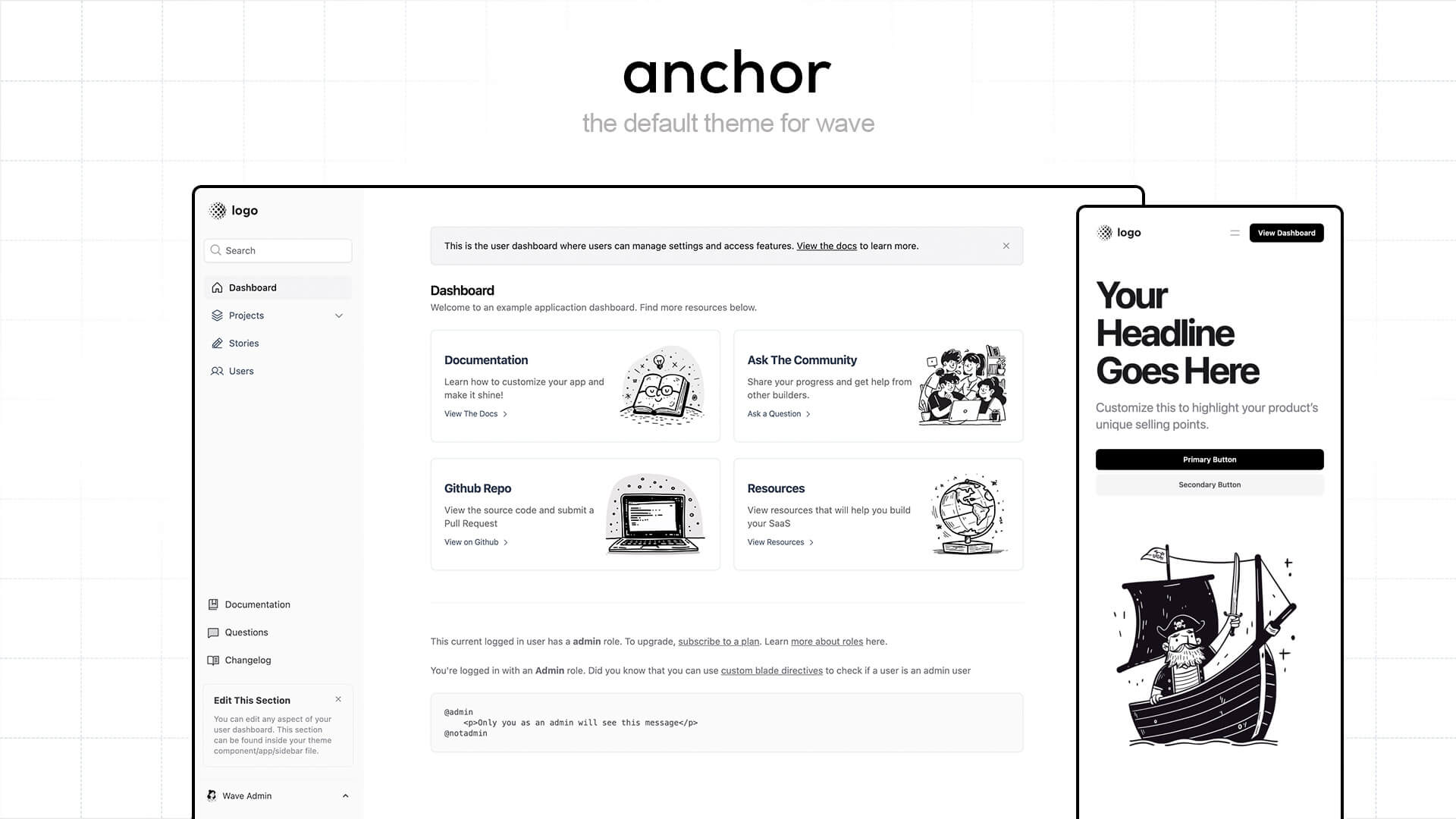Introduction
Laravel Wave is an open-source Software as a Service Starter Kit that can help you build your next great idea 💰.
Wave is built with Laravel, Voyager, TailwindCSS, and a few other awesome technologies.
Features
Here are some of the awesome features that Wave provides out of the box ✨:
- Authentication
- User Profiles
- User Impersonation
- Subscriptions
- Subscription Plans
- User Roles
- Notifications
- Announcements
- Fully Functional Blog
- Out of the Box API
- Voyager Admin
- Customizable Themes
GitHub Repository
You can get a copy of Laravel Wave here:
 thedevdojo
/
wave
thedevdojo
/
wave
Wave - The Software as a Service Starter Kit, designed to help you build the SAAS of your dreams 🚀 💰
Wave is a SaaS framework, built with Laravel, that will make building your SaaS application fun and easier than ever before. View the full docs here.
Wave provides you with all the essential features found in many popular SaaS platforms, allowing you to quickly transform your idea into a profitable SaaS product. Here are a handful of features that Wave Provides:
- Authentication
- User Profiles
- User Impersonations
- Billing
- Subscription Plans
- Roles & Permissions
- User Notifications
- Changelog
- Blog
- Pages
- API
- Admin
- Themes
- Plugins
Be sure to view a list of all features here.
Demo
You can view a live demo here, which will also allow you to preview all the available themes.
Installation
There are two ways to install Wave, you can install it via the automated installer or manually.
Click here to view the full installation instructions.
Support the Project
The best way to support…
Demo
View a live demo here, or deploy your own instance to DigitalOcean, by clicking the button below.
Installation
To install Wave, you'll want to clone or download this repo:
git clone https://github.com/thedevdojo/wave.git project_name
Next, we can install Wave with these 4 simple steps:
1. Create a New Database
During the installation we need to use a MySQL database. You will need to create a new database and save the credentials for the next step.
2. Copy the .env.example file
We need to specify our Environment variables for our application. You will see a file named .env.example, you will need to duplicate that file and rename it to .env.
Then, open up the .env file and update your DB_DATABASE, DB_USERNAME, and DB_PASSWORD in the appropriate fields. You will also want to update the APP_URL to the URL of your application.
APP_URL=http://wave.test
DB_CONNECTION=mysql
DB_HOST=127.0.0.1
DB_PORT=3306
DB_DATABASE=wave
DB_USERNAME=root
DB_PASSWORD=
3. Add Composer Dependencies
Next, we will need to install all our composer dependencies by running the following command:
composer install
4. Run Migrations and Seeds
We need to migrate our database structure into our database, which we can do by running:
php artisan migrate
Finally, we will need to seed our database with the following command:
php artisan db:seed
🎉 And that's it! You will now be able to visit your URL and see your Wave application up and running.
Watch, Learn, and Build
We've also got a full video series on how you can setup, build, and configure Wave. 🍿 You can watch first few videos for free, and additional videos will require a DevDojo Pro subscription. By subscribing to a DevDojo Pro subscription you will also be supporting the ongoing development of this project. It's a win win! 🙌
Click here to watch the Wave Video Series.
Documentation
Checkout the official documentation here.
Conclusion
With Laravel Wave you can save time and focus on the functionality of your SaaS.
If you like the project make sure to star it on GitHub 🙌
Any feedback is also going to be highly appriciated!








Top comments (1)
This looks so awesome!